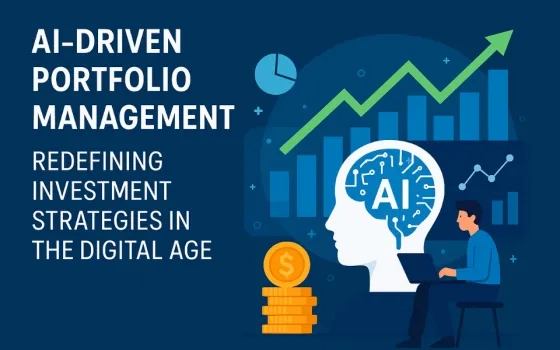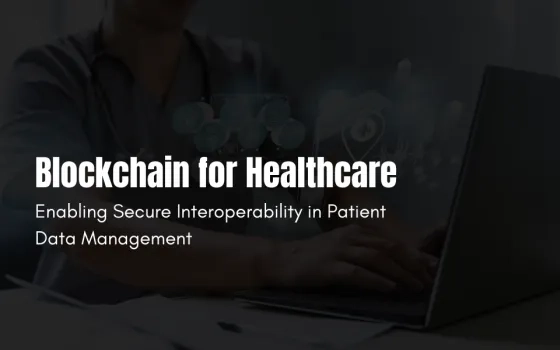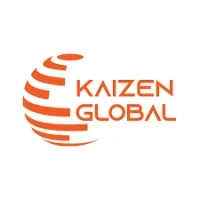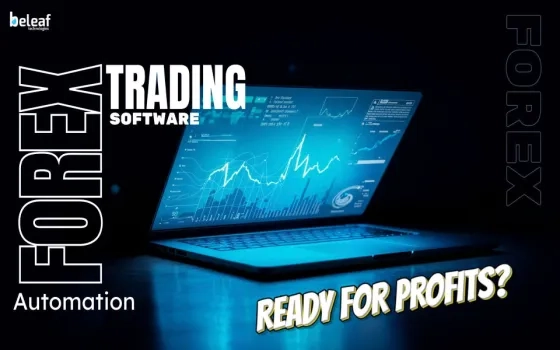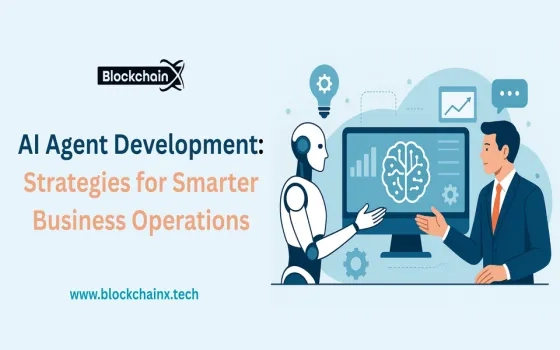The healthcare industry is undergoing a digital revolution, and tokenization is at the forefront of this transformation. Healthcare tokenization development refers to the process of converting medical assets like patient data, medical equipment, and billing information into digital tokens stored on a blockchain. These tokens act as secure, verifiable representations of real-world assets, enabling efficient and transparent management across medical institutions. In an industry where data sensitivity and operational integrity are paramount, tokenization provides a streamlined solution to longstanding challenges.
With the rising complexity of healthcare ecosystems, from hospitals to insurance networks, the need for improved asset tracking and management has become critical. Tokenized systems can significantly reduce fraud, data silos, and administrative overhead. Furthermore, smart contracts can automate processes such as claims settlement, procurement, and supply chain tracking. As a result, healthcare organizations can enhance patient trust, ensure data compliance, and increase operational efficiency. Embracing tokenization development isn’t just about digital innovation it’s a step toward more accountable and accessible healthcare.
What Is Healthcare Tokenization?
Healthcare tokenization is the process of converting sensitive medical data and physical healthcare assets such as patient records, insurance details, medical equipment, and pharmaceuticals into secure, encrypted digital tokens stored on a blockchain. These tokens serve as tamper-proof representations of real-world assets, enabling secure sharing, tracking, and management across decentralized networks. By using tokenization, healthcare institutions can enhance data privacy, reduce fraud, streamline administrative tasks, and ensure regulatory compliance, ultimately fostering a more transparent and efficient healthcare ecosystem.
Benefits of Tokenizing Healthcare Assets
Tokenizing healthcare assets introduces a new level of transparency, efficiency, and security to the medical industry. By leveraging blockchain technology, healthcare providers can revolutionize the way they manage data, equipment, and transactions. Below are the key benefits of adopting healthcare tokenization:
- Enhanced Data Security Tokenization ensures that sensitive patient and institutional data is encrypted and stored securely on the blockchain. Unlike traditional systems vulnerable to breaches, tokenized records are immutable and accessible only through authorized channels, significantly reducing the risk of data theft or tampering.
- Improved Transparency and Traceability Every tokenized asset is recorded on a transparent and auditable ledger, allowing stakeholders to track its movement and ownership in real-time. This is especially valuable in pharmaceutical supply chains and equipment tracking, ensuring accountability at every stage.
- Reduced Administrative Costs By automating processes like billing, claims management, and inventory tracking with smart contracts, healthcare organizations can eliminate manual paperwork and reduce operational expenses. This leads to faster processing times and fewer human errors.
- Regulatory Compliance Support Tokenized systems help maintain detailed audit trails and access logs, aiding compliance with regulations such as HIPAA and GDPR. The transparency of blockchain ensures that all actions taken with data are recorded, simplifying audits and reviews.
- Faster and Secure Transactions Financial interactions such as insurance payouts or cross-border payments can be completed more quickly and securely using tokenized systems. This reduces wait times for patients and streamlines workflows for providers and insurers.
Use Cases of Tokenization in Healthcare
Tokenization is transforming the healthcare landscape by enabling more secure, efficient, and transparent operations. Here are some of the most impactful use cases of tokenization in the medical industry:
- Tokenized Patient Records Sensitive patient data can be tokenized to create a secure and immutable medical history that patients can control. This allows for seamless data sharing among authorized providers, improving care coordination while maintaining strict data privacy and compliance with healthcare regulations.
- Pharmaceutical Supply Chain Management Tokenization allows each pharmaceutical product to be tracked from manufacturer to end-user using a unique digital token. This improves inventory tracking, reduces counterfeiting, and enhances transparency across the entire supply chain, ensuring patients receive genuine medications.
- Medical Equipment and Asset Tracking Hospitals and clinics can tokenize their equipment and physical assets to monitor usage, maintenance schedules, and location in real time. This reduces equipment loss, ensures timely servicing, and improves resource allocation across facilities.
- Insurance and Claims Processing Tokenized health data combined with smart contracts can automate insurance claim submissions and approvals. This streamlines the reimbursement process, eliminates fraudulent claims, and minimizes administrative delays for both providers and patients.
- Clinical Trials and Research Tokenization supports secure and transparent data sharing in clinical trials by creating digital identities for trial participants and associated datasets. This improves data integrity, ensures patient anonymity, and accelerates research timelines by reducing bureaucratic hurdles.
How Tokenization Supports Compliance and Security
Tokenization plays a critical role in strengthening compliance and data security within the healthcare industry. By converting sensitive medical data and assets into encrypted digital tokens stored on blockchain networks, tokenization ensures that this information is protected from unauthorized access and tampering. Each token is uniquely identifiable and can only be accessed through strict permissioned protocols, which aligns with global data protection standards such as HIPAA, GDPR, and HITECH.
Blockchain’s inherent features immutability, transparency, and auditability make it easier for healthcare organizations to maintain detailed records of data access and modifications. This is essential during audits and regulatory reviews. Additionally, tokenized systems can implement role-based access controls, ensuring that only authorized personnel can interact with specific data or assets. By automating data trails and securing asset usage through smart contracts, tokenization not only safeguards sensitive information but also fosters a culture of accountability and trust across the healthcare ecosystem.
Key Players in Healthcare Tokenization Development
As healthcare tokenization gains momentum, several forward-thinking technology companies and blockchain development firms are leading the charge in building secure, scalable, and regulatory-compliant solutions. These key players are instrumental in driving innovation and adoption across the medical ecosystem:
- Solve.Care Solve.Care is a blockchain-based healthcare platform that focuses on streamlining healthcare administration and improving patient outcomes through decentralized systems. Their Care.Wallet and Care.Coin solutions help patients, providers, and insurers transact securely and transparently.
- Medicalchain Medicalchain uses blockchain to securely store and share electronic health records. Their platform enables patients to control access to their health data while ensuring that providers can view accurate records in real time, enhancing trust and collaboration.
- IBM Blockchain IBM offers enterprise-grade blockchain solutions tailored for healthcare, with a focus on data security, supply chain transparency, and clinical data sharing. Their blockchain-based infrastructure supports tokenized ecosystems for improved traceability and compliance.
- Chronicled Chronicled delivers blockchain-powered supply chain solutions for the healthcare and life sciences industries. Their MediLedger network helps pharmaceutical companies track and verify drug authenticity using tokenized data, reducing counterfeiting and regulatory risk.
- Guardtime Guardtime develops blockchain-based data integrity and cybersecurity solutions. Their health-focused platform, KSI Blockchain, supports secure health data exchanges and helps organizations remain compliant with evolving regulations while protecting sensitive patient information.
Challenges in Traditional Healthcare Asset Management
Traditional healthcare asset management systems are often plagued by inefficiencies, security risks, and a lack of transparency. These outdated methods hinder the ability of hospitals and medical institutions to operate smoothly and respond effectively to patient needs. Below are some of the most pressing challenges:
- Lack of Real-Time Visibility Many healthcare facilities struggle with outdated tracking systems that fail to provide real-time data on asset location and usage. This leads to misplacement of critical equipment, underutilization of resources, and increased operational costs.
- Data Fragmentation Patient data, inventory records, and financial transactions are often stored across disparate systems that don’t communicate with one another. This fragmentation makes it difficult to gain a comprehensive view of assets, delays decision-making, and increases the risk of errors.
- Manual Processes and Human Error Relying on paper-based logs or spreadsheets to manage equipment, medications, and patient files introduces significant room for human error. Manual recordkeeping also slows down operations and complicates audits or compliance checks.
- Security and Privacy Concerns Traditional systems often lack robust cybersecurity measures, making sensitive data vulnerable to breaches. This is particularly concerning in healthcare, where patient information must be protected under strict data privacy laws.
- Inefficient Compliance Management Adhering to regulations such as HIPAA and GDPR becomes more difficult with outdated systems that lack proper audit trails and data access controls. This not only puts patient information at risk but also exposes institutions to legal and financial penalties.
Future Trends in Healthcare Tokenization
As digital transformation accelerates, tokenization is poised to become a foundational technology in modern healthcare. With advancements in blockchain, AI, and IoT, the future holds exciting possibilities for secure, efficient, and intelligent asset and data management. Here are some key trends to watch:
- Integration with AI and Predictive Analytics Tokenized healthcare data can fuel AI algorithms that analyze patient histories, treatment outcomes, and resource usage. This fusion allows healthcare providers to forecast demand, personalize treatments, and make data-driven decisions while ensuring that sensitive data remains secure and traceable.
- IoT-Enabled Token Tracking As medical devices become increasingly connected, integrating IoT with tokenization allows real-time tracking of assets and patient vitals. This enhances operational efficiency and patient safety by enabling proactive maintenance, remote monitoring, and automated alerts linked to blockchain-secured tokens.
- Decentralized Patient Data Ownership In the near future, patients may fully control their medical histories using decentralized identity systems powered by tokenization. They’ll grant or revoke access to providers as needed, increasing privacy and promoting patient-centered care without relying on central data authorities.
- Smart Contracts for Automated Healthcare Operations Smart contracts will play a greater role in automating complex processes such as insurance verification, appointment scheduling, and drug delivery. These self-executing protocols ensure transactions happen only when predefined conditions are met, reducing manual intervention and enhancing system trust.
- Cross-Border Healthcare Token Exchange Tokenization is expected to simplify global healthcare collaboration by enabling the secure exchange of medical records and assets across jurisdictions. This will support medical tourism, global research collaborations, and emergency care coordination without compromising data privacy.
Conclusion
Healthcare tokenization development is not merely a trend; it is a transformative approach to asset management that promotes decentralization, transparency, and security. By leveraging blockchain technology, healthcare organizations can maintain tamper-proof records, optimize workflows, and ensure compliance with regulations like HIPAA. Patients, providers, and payers all benefit from this system, creating a more collaborative and efficient healthcare environment.
As tokenization continues to evolve, we can expect broader adoption across various healthcare segments, from medical research to pharmaceutical logistics. Innovative tech providers are now developing tokenized solutions specifically designed for the healthcare sector, making it easier for organizations to transition to this advanced digital infrastructure. In the coming years, tokenization could become the cornerstone of digital healthcare, laying the foundation for smarter, safer, and more accessible medical services around the globe.





